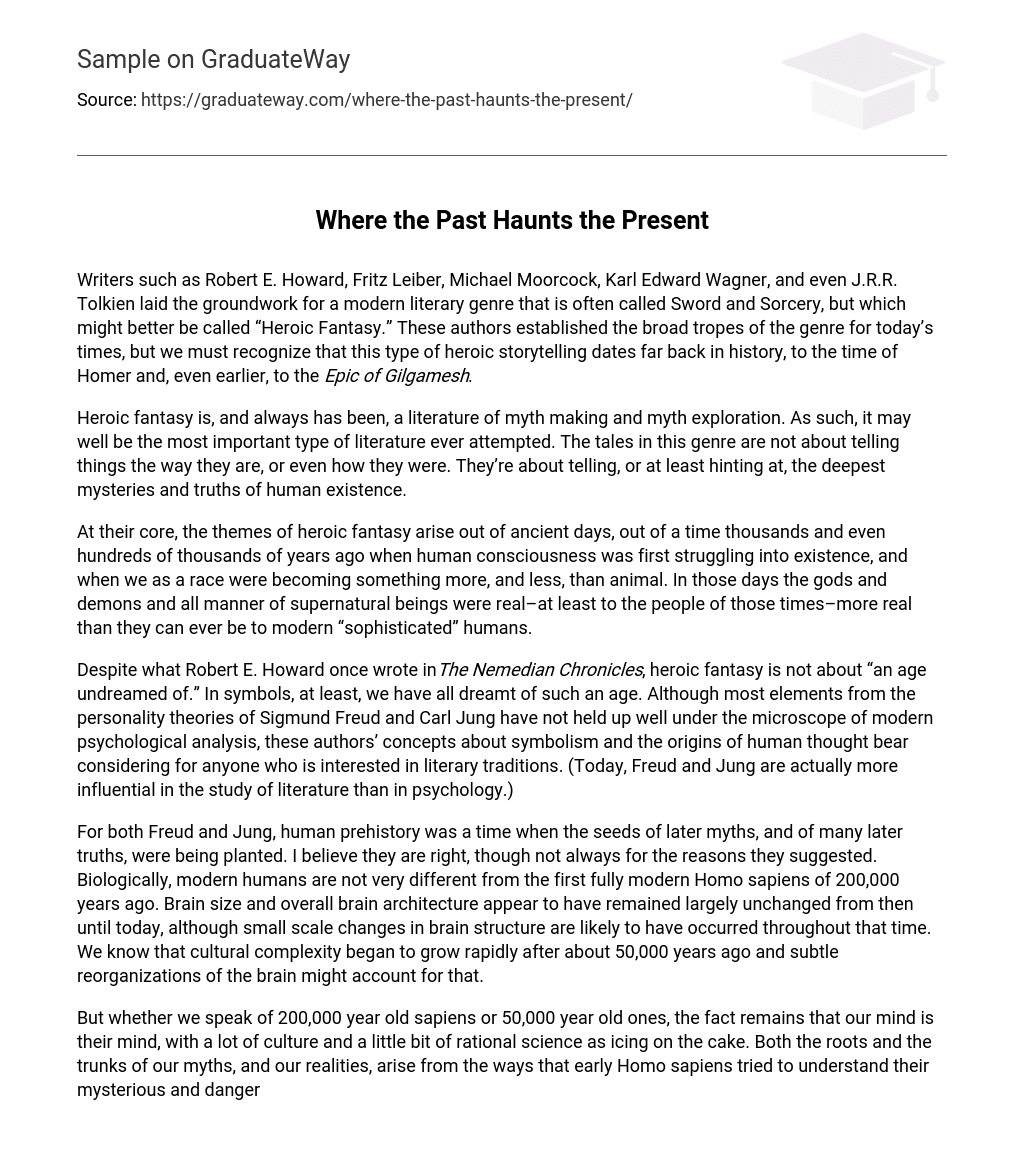Writers such as Robert E. Howard, Fritz Leiber, Michael Moorcock, Karl Edward Wagner, and even J.R.R. Tolkien laid the groundwork for a modern literary genre that is often called Sword and Sorcery, but which might better be called “Heroic Fantasy.” These authors established the broad tropes of the genre for today’s times, but we must recognize that this type of heroic storytelling dates far back in history, to the time of Homer and, even earlier, to the Epic of Gilgamesh.
Heroic fantasy is, and always has been, a literature of myth making and myth exploration. As such, it may well be the most important type of literature ever attempted. The tales in this genre are not about telling things the way they are, or even how they were. They’re about telling, or at least hinting at, the deepest mysteries and truths of human existence.
At their core, the themes of heroic fantasy arise out of ancient days, out of a time thousands and even hundreds of thousands of years ago when human consciousness was first struggling into existence, and when we as a race were becoming something more, and less, than animal. In those days the gods and demons and all manner of supernatural beings were real–at least to the people of those times–more real than they can ever be to modern “sophisticated” humans.
Despite what Robert E. Howard once wrote in The Nemedian Chronicles, heroic fantasy is not about “an age undreamed of.” In symbols, at least, we have all dreamt of such an age. Although most elements from the personality theories of Sigmund Freud and Carl Jung have not held up well under the microscope of modern psychological analysis, these authors’ concepts about symbolism and the origins of human thought bear considering for anyone who is interested in literary traditions. (Today, Freud and Jung are actually more influential in the study of literature than in psychology.)
For both Freud and Jung, human prehistory was a time when the seeds of later myths, and of many later truths, were being planted. I believe they are right, though not always for the reasons they suggested. Biologically, modern humans are not very different from the first fully modern Homo sapiens of 200,000 years ago. Brain size and overall brain architecture appear to have remained largely unchanged from then until today, although small scale changes in brain structure are likely to have occurred throughout that time. We know that cultural complexity began to grow rapidly after about 50,000 years ago and subtle reorganizations of the brain might account for that.
But whether we speak of 200,000 year old sapiens or 50,000 year old ones, the fact remains that our mind is their mind, with a lot of culture and a little bit of rational science as icing on the cake. Both the roots and the trunks of our myths, and our realities, arise from the ways that early Homo sapiens tried to understand their mysterious and dangerous world. They told stories to explain their experiences. And those stories have passed down to us as myths. Heroic fantasy is the closest thing we have to modern mythmaking in the great human tradition.
Storytelling is how we all make sense of our world. And despite Heroic Fantasy’s critics, who sometimes refer to it as “juvenile” literature, no other form of modern storytelling does so much to explore the way that humans became human.





